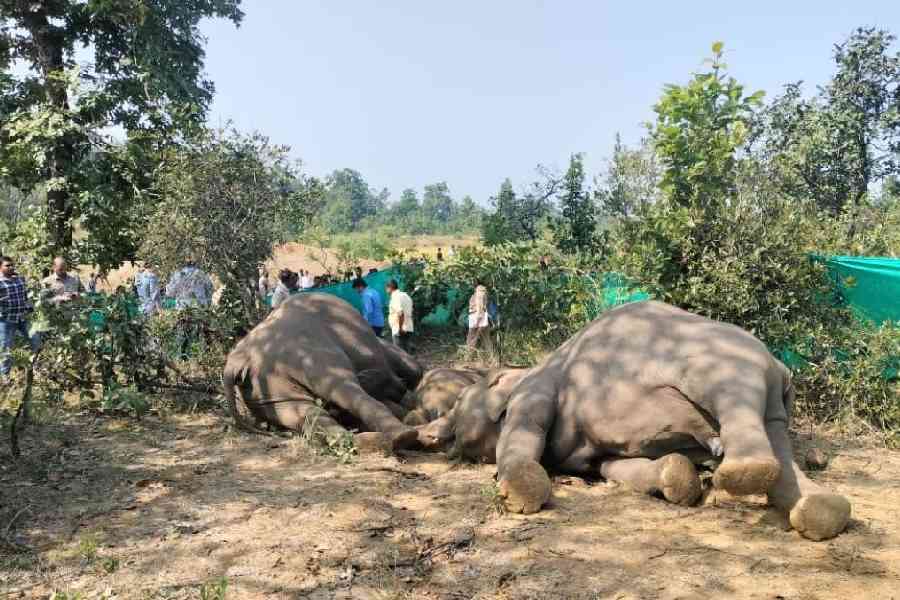Odisha reportedly loses 15 elephants because of electrocution every year, and in the last 10 years since 2014-15, the state has witnessed the death of 154 elephants because of electrocution.
Of these, 103 deaths were because of elephants coming in contact with live wires loosened by poachers.
These facts are back in focus in the wake of the death of three elephants, including a calf, because of electrocution in Sambalpur. On Sunday night, these three elephants came in contact with a live power line laid by poachers to trap wild boars to protect crops in Naktideula of Sambalpur and died.
In a face-saving move, the Odisha government has suspended three forest officials in connection with the deaths of these jumbos. The forest department has recommended strict action against the officials for dereliction of duty. Besides, the forest department arrested three people involved in the death of these elephants. Efforts are being made to arrest another person who is on the run after committing the crime.
Principal chief conservator of forest (wildlife) Susanta Nanda admitted there was negligence on the part of the patrolling team and field officials. The state government has also asked the power distribution companies to install earth leakage circuit breakers.
"If these have not been installed in elephant movement areas, then electricity should be disconnected in those areas forthwith otherwise for any case of electrocution death of wild animals, the DISCOMs will be held responsible,” said a notification.
In September 2017, the state lost five elephants near Meramundali in Dhenkanal district when a sagging 11kv wire touched a herd. Similarly, the state lost its iconic 40-year-old Ramu, the largest tusker of Chandaka Wildlife Sanctuary, in August this year, on the outskirts of Bhubaneswar when it came in contact with a sagging electric wire.
However, despite all these horrific incidents, the state failed to initiate any action against the Discom officials under the Wildlife (Protection) Act 1972 despite the death of 154 elephants in the last 10 years,
“No action has been taken against senior officials though there is circular that states that laid down the process of probe in case of unnatural death of elephants,” said former honorary wildlife warden Bhanu Mitra Acharya.
The comptroller and auditor general (CAG) has lashed out at the forest department in its report for failing to protect elephants. The CAG has found a number of lapses in the forest department that have contributed to elephant deaths, including in the core area of the forests of Odisha.
The elephants are being killed either because of electrocution or for other reasons, including falling prey to poachers.
In its report, the CAG pointed out that the elephant is listed under Scheduled-I of the Wild Life Protection Act 1972, which records the maximum protection for the species. “Protection-related infrastructure, hired vehicles and other logistics are provided round the year, to facilitate staff and squad to carry out regular patrolling. Despite all these things, the number of deaths could not be checked and it remained a concern,” the CAG said.
On scrutiny, the audit observed that various contributing factors for the death of elephants such as deficit in foot patrolling in the forest areas according to the Odisha Forest Management System data, non-utilisation of trap cameras at proper places, deployment of elephant squads, lack of weapons and no action against the field staff for lapses in reporting of the poaching and the poachers.










